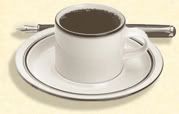How to Read a Poem + Heat in Poetry [links to essays]
From How to Read a Poem:
To have a clue, reading very good poetry must be swallowed whole. Don’t sit there chewing away, gumming the food and trying to figure out if you like it (I’m not talking about fast food here, but fine cuisine). Most people know within seconds if they’ve got a really big fish on the line. The pole goes down and you get a tug. The response? Any self-respecting angler will exclaim in glee and start reeling away like a lunatic.From Heat in Poetry:
So, I’m suggesting, when you read poetry, do just that. Read it. It’s that simple. Don’t cerebrum your way through it, asking: what does this mean? What does that imply, what is the author trying to tell me? Oh dear, that poet must be in a very dark place… no, that poet can’t be talking about a real life experience, etc. There's plenty of time for that later. Sometimes you just have to swallow before chewing.
I like to think of poetry as a collection of words, each with their own potential energy. We seek to group the words in such a way that will increase that energy, like rolling a huge ball up a hill. The higher it goes, the farther it will roll down. Poetry finds a language that is hidden in the vernacular of our imagination. It will have a certain sound (especially when read by the author, with the author’s full intent) that will sound like poetry. As prosaic as this appears, it becomes clearer if one listens to enough poetry recited out loud (podcasts of poets can be widely found on the web, not only by contemporary poets, but also past recordings of great 20th century poets like Auden, Frost, Plath, Bishop, and Dylan Thomas, to name just a few). It is in the hearing of poems read aloud that I have come to appreciate in a special way this dynamic force of building energy in great poetry.Go read.



